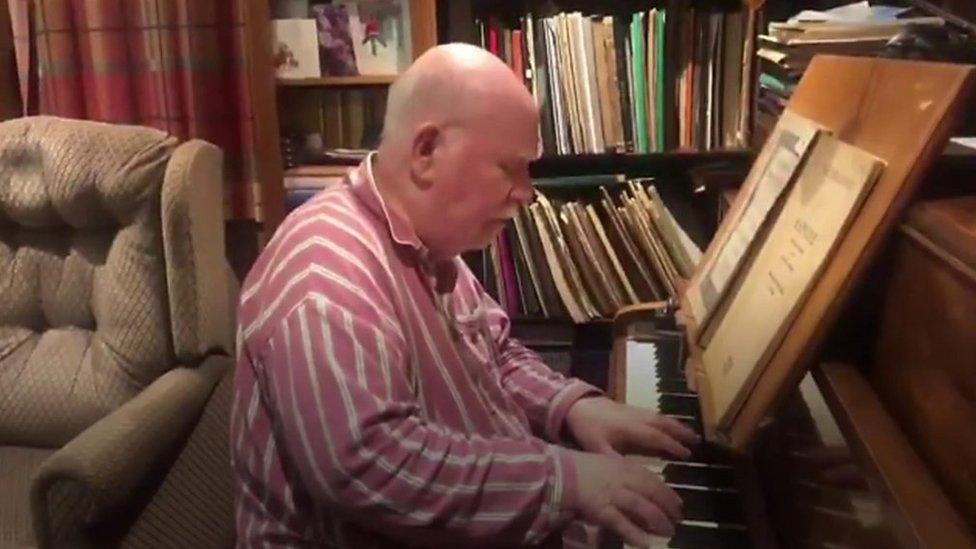Dementia: How music can bring people back into the here and now
- Published
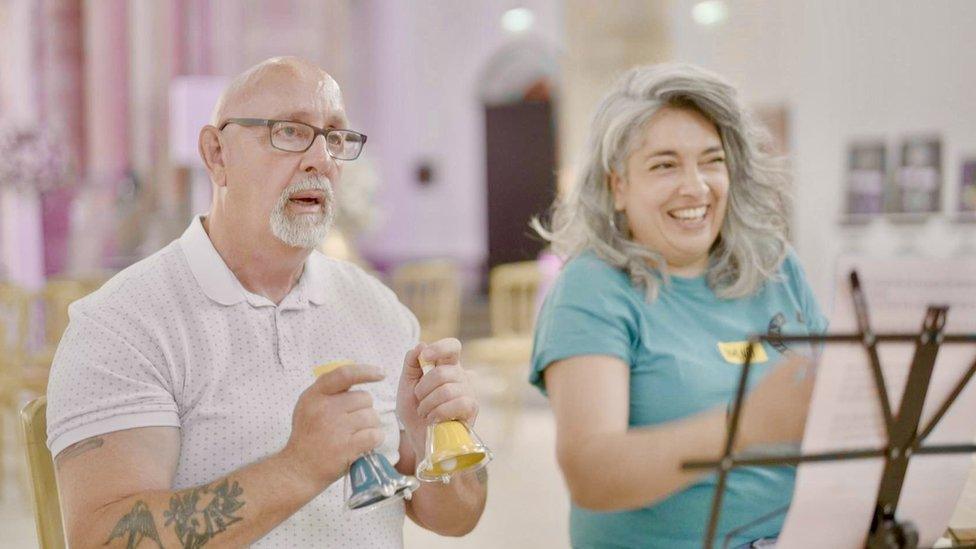
Keith Taylor attends weekly music therapy classes
An orchestra is attempting to bring people living with dementia back into the present.
The work being done by Manchester Camerata has never been more important, given that there are about 900,000 people with the condition in the UK, a number that is predicted to nearly double by 2040.
The profound impact of music on memory, especially those living with dementia, has been increasingly recognised by researchers in recent years.
It's commonly known, for example, that people with dementia often find listening to music can reignite old memories from long ago.
Much more overlooked, though, is the impact that making music can have on the present.
While some with dementia can often feel trapped in the past, some researchers believe the act of creating music - as well as listening to it - can help to reconnect them to the here and now.
A new BBC documentary - Dementia, Music and Us - follows the work of Manchester Camerata and its principal flautist Amina Hussain.
Amina, who is also a professional music therapist, leads classes across the north-west of England that have been described as life-changing.
"Taking part in the 'Music in Mind' workshops has been an enormous privilege for me as a musician," she said.
"It has really changed my outlook of what music is and what it can do."
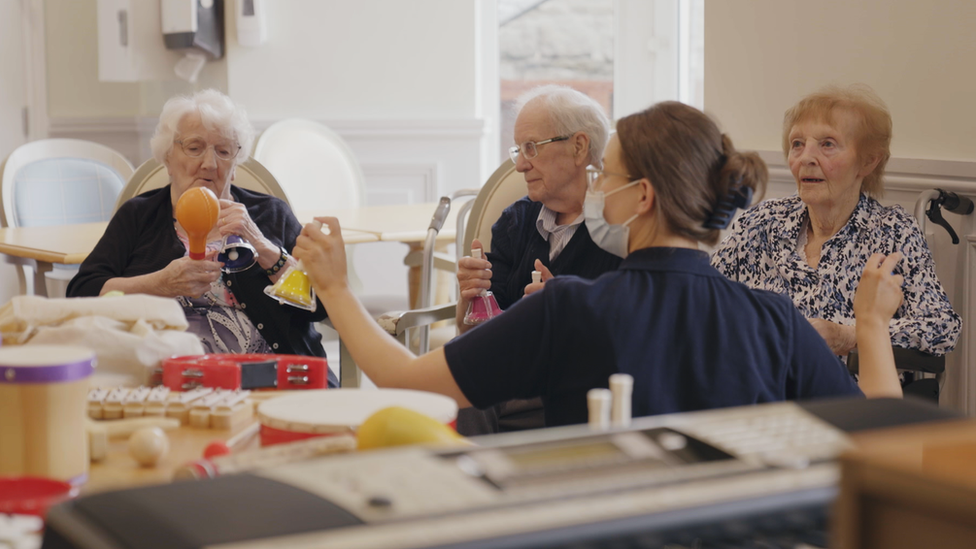
Carer Beth Forster leads music workshops
Classes for the community consist of improvisation, singing, and writing their own music and lyrics.
Keith Taylor, 62, was diagnosed with frontotemporal dementia, external when he was 53 and is one of more than 42,000 people aged under 65 with dementia in the UK.
Like many, he really struggled to come to terms with his new reality.
"The best way I could explain it," he said, "is if you're in a pine-wooded area and all of the trees are in grids and blocks and you're walking through that and it's dark and you can see the mist coming up behind you and you can feel it catching you... I have proper anxiety."
He has been attending music therapy workshops tailored to those living with dementia.
'Stand up taller'
Keith's partner of 14 years, Joan, said they had found the sessions to be genuinely life-changing.
"I think the thing that saved us was the first ever music group we went to because from that group it opened other groups up for us," she said. "It's been fantastic."
Keith added: "I live life every week. Not every day - every week because I've got music sessions."
He said the workshops "make him smile, enjoy life and it just brings the best out of you".
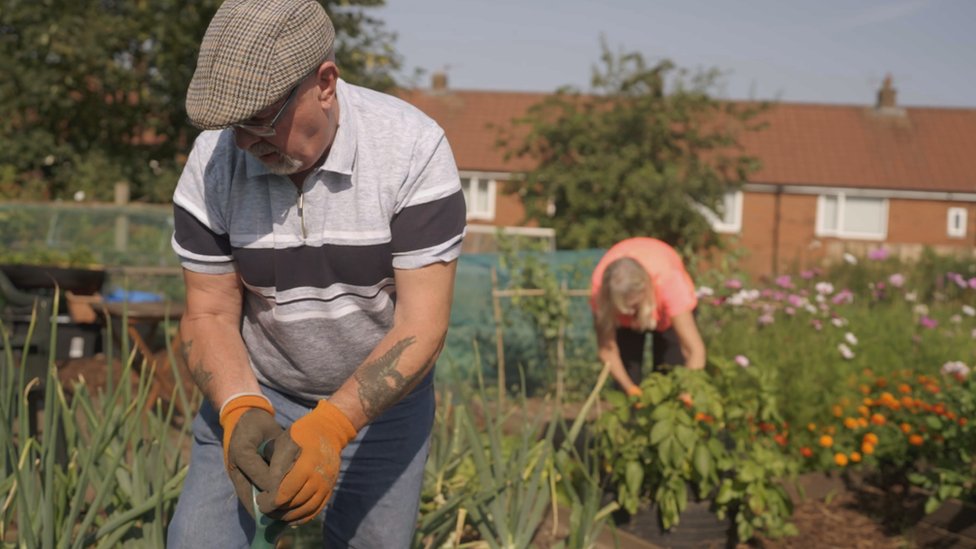
Keith Taylor was diagnosed with frontotemporal dementia when he was 53
Researcher Dr Robyn Dowlen is seeking to better understand the "in the moment" benefits of music-making for people with dementia.
Dr Dowlen explained that her research "focusses in on those... micro-level experiences that a person with dementia has".
She believes the improvisational music workshop experience allows people to "create something that is held now in the moment".
Keith described how the sessions and being in what Dr Dowlen calls the "musical spotlight" had helped him "stand up taller".
Dr Dowlen added: "Improvisational music-making is particularly important for people with dementia, especially when it comes to building their confidence and their self-esteem."
Beth Forster, from Liverpool, started her career in caring as a volunteer two years ago when she found herself furloughed during the pandemic.
When a staff position subsequently became available she applied and has never looked back.
The 28-year-old decided to get involved in the music workshops after news began to spread about the positive impact they could have on those living in care homes.
A musician herself, Beth received training from Manchester Camerata's professional music therapists so she could lead her own workshops.
Beth said: "I feel like I've got more strategies to bring residents into the present to help them if they're distressed... I can't really believe this is my job... it is a real privilege."
Dementia, Music and Us will be broadcast on 25 November at 19:30 GMT on BBC One in the North West, East Yorkshire, and Yorkshire and Lincolnshire. It will then be available on BBC iPlayer nationwide.

Why not follow BBC North West on Facebook, external, Twitter, external and Instagram, external? You can also send story ideas to northwest.newsonline@bbc.co.uk, external
Related topics
- Published1 November 2022
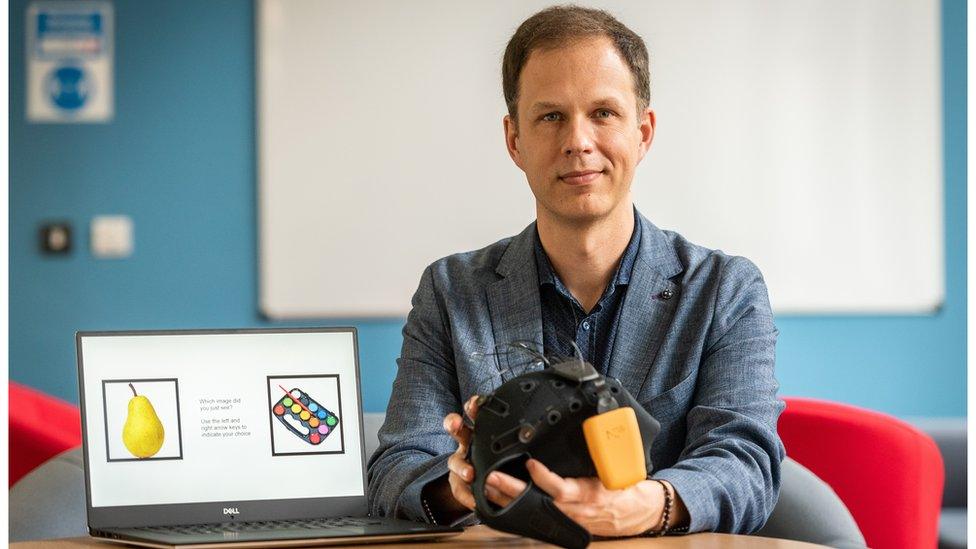
- Published21 October 2022
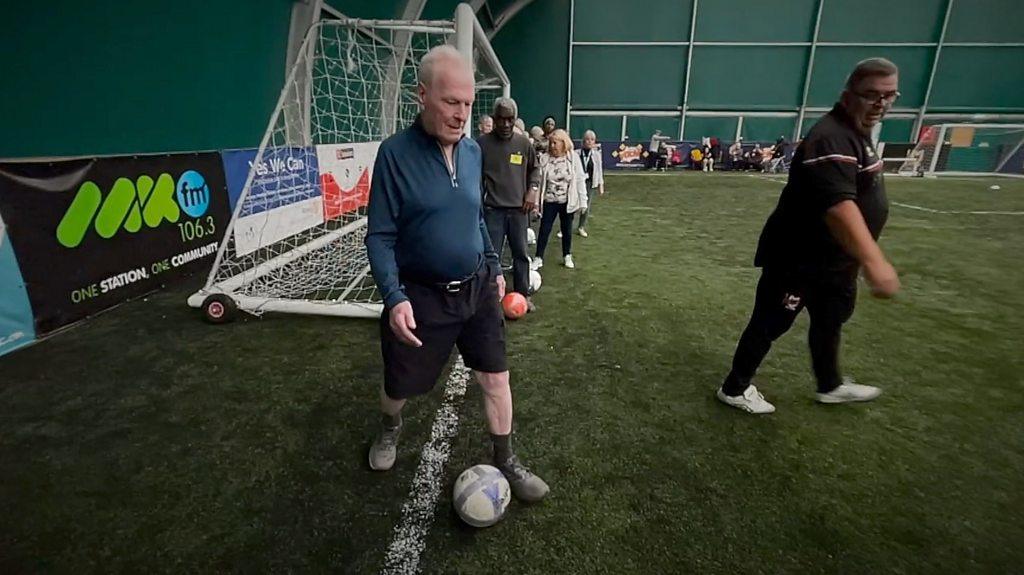
- Published16 October 2022
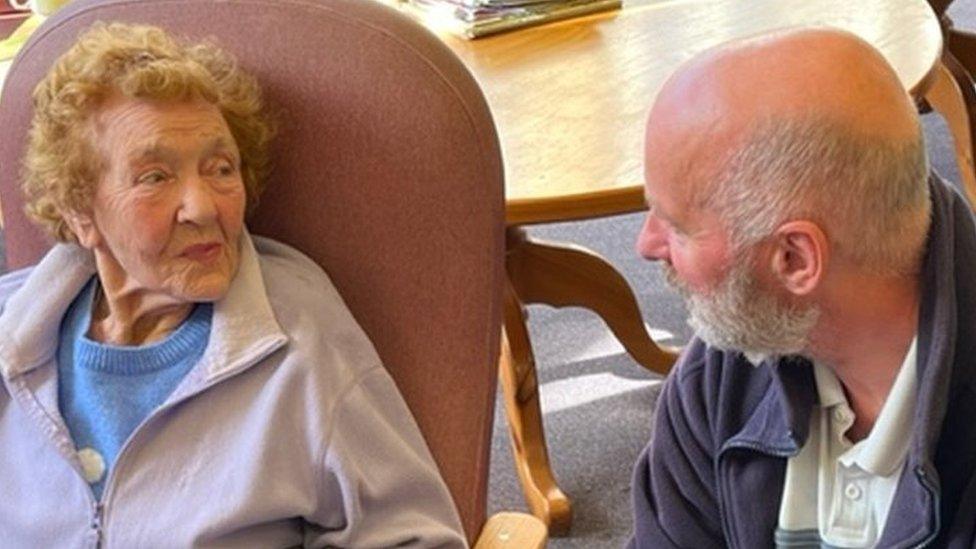
- Published10 October 2022
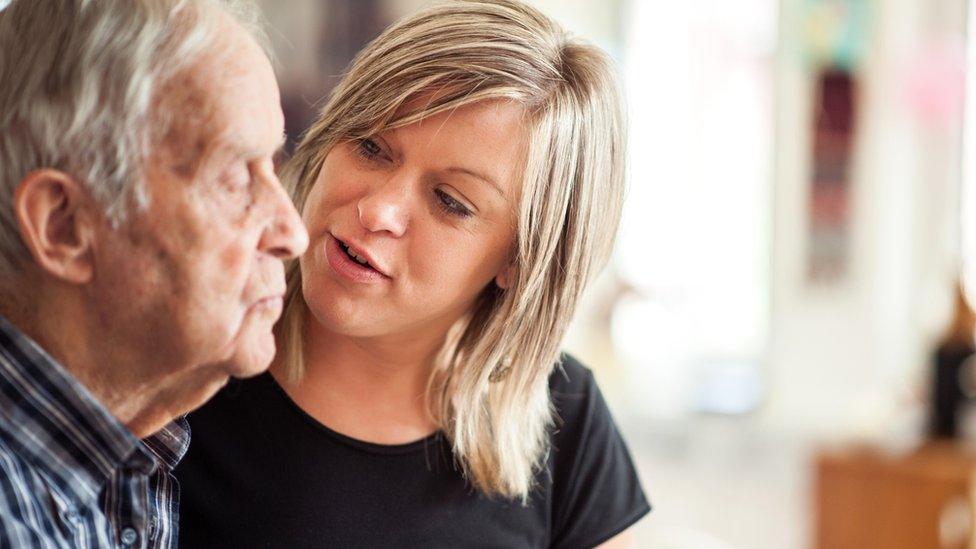
- Attribution
- Published5 October 2022
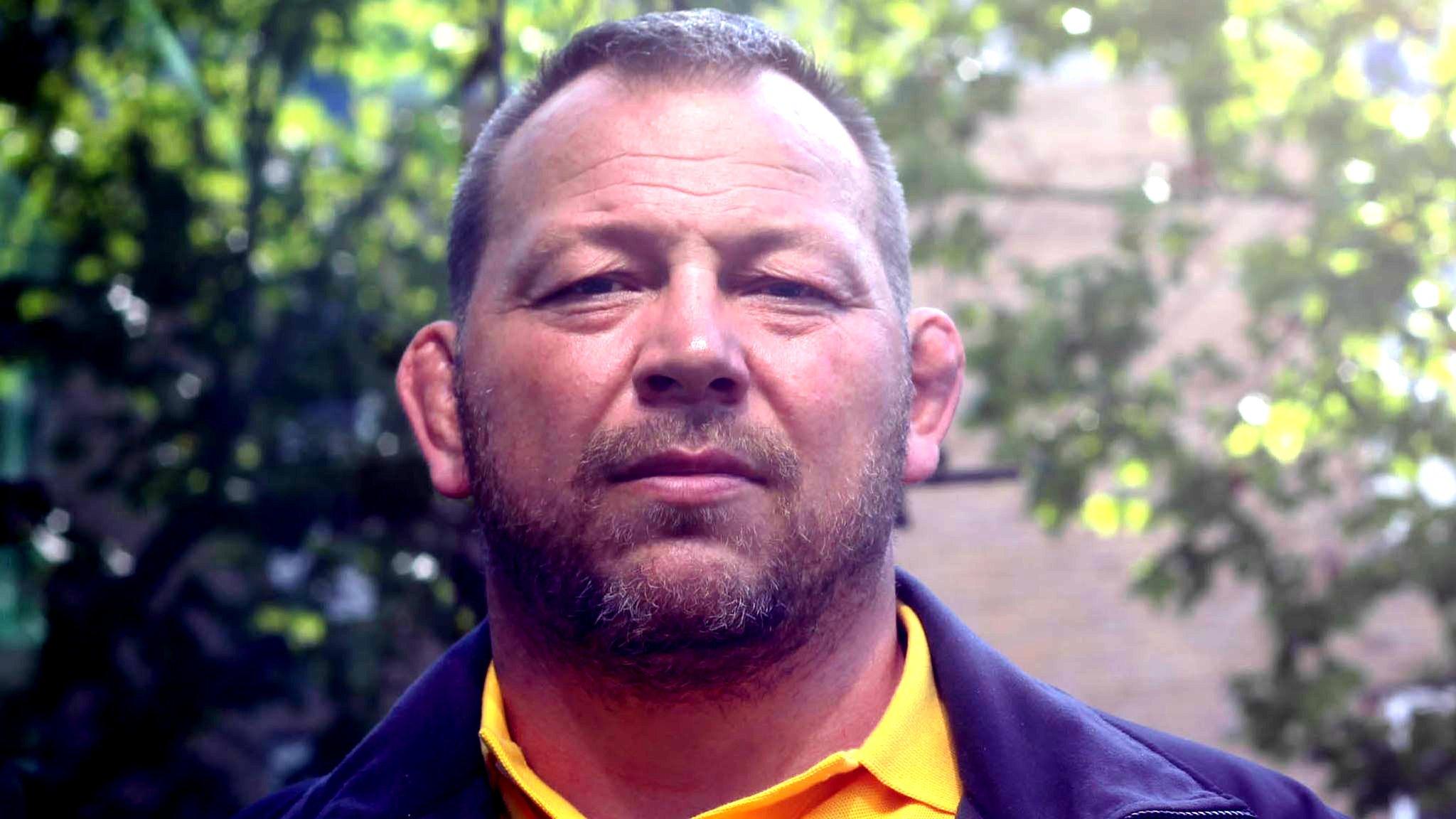
- Published13 October 2021
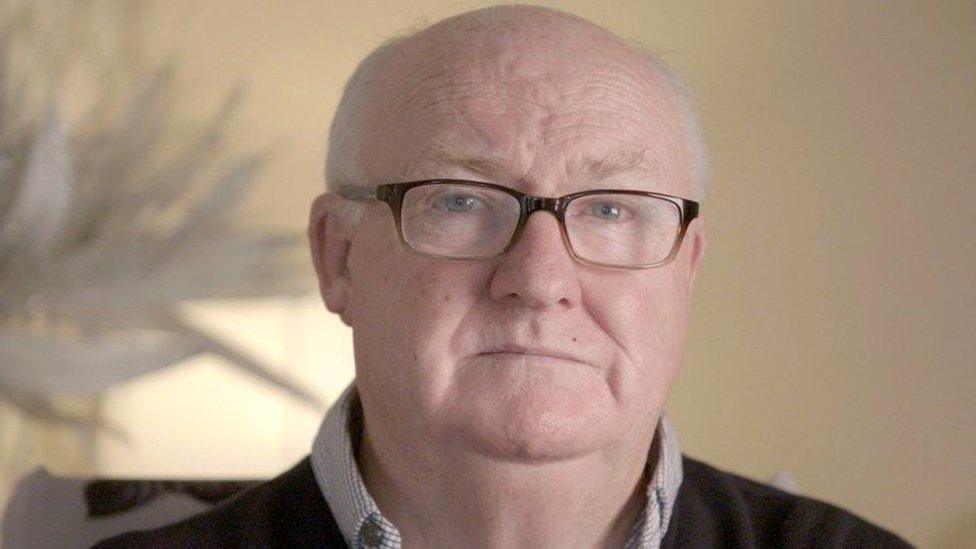
- Published13 May 2021
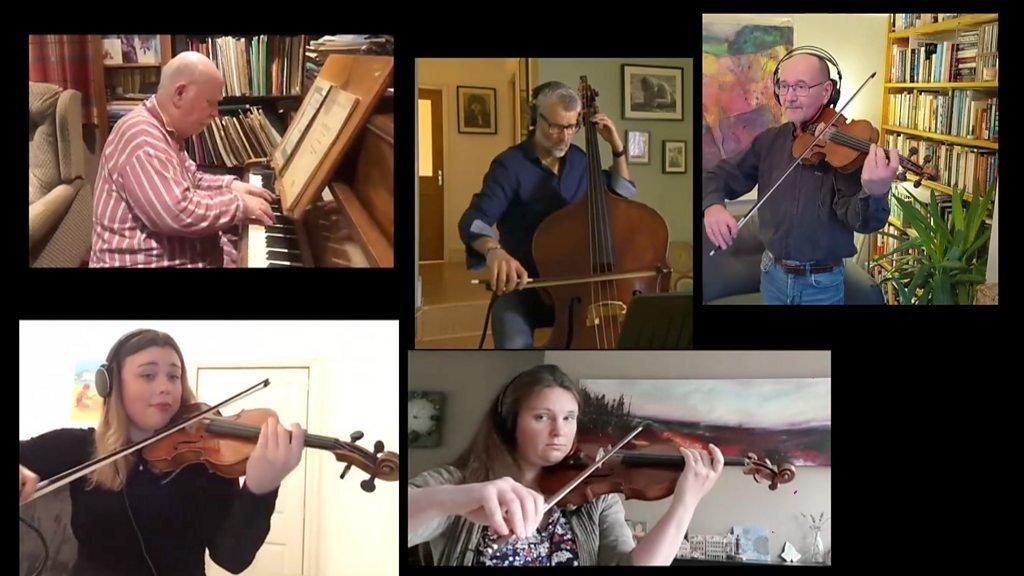
- Published2 November 2020
